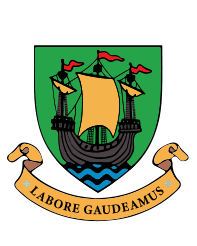History
Vision
At Seaford Primary School, we believe that the high-quality teaching of history is a vital part of the rich education that all our children deserve. Our approach is inspired by the idea that encouraging children to explore the past will empower them to understand the present. We achieve this by enabling our children to discover how the modern world has been shaped by the events of the past, developing a sense of wonder by sharing how we are standing on the shoulders of those who have come before us. Key to our vision is the idea that all children should be given the chance to experience a love of history. We also believe that children should be equipped with the tools they need to independently explore the past. We strive to teach children the skills they need to become young historians, guided by curiosity. Therefore, all teachers empower children to engage in historical enquiry by thinking critically, evaluating evidence, and considering different perspectives.
Importance of History
We see history as playing a crucial role in children’s learning. By igniting in our pupils a curiosity about different people, places and events in history, we strive to spark their interest in the different peoples, places and events of the world today. In doing so, we aim to develop learners who are inquisitive, thoughtful and inclusive, equipped with the skills, understanding and values that will support them throughout their education and as future, global citizens. We believe that history also allows children to explore their own understanding of their place within the world, helping them as they develop their sense of identity.
At Seaford Primary
We offer a broad, rich variety of topics to ensure children develop a secure sense of chronology, with an awareness of how different eras and events are interlinked. Children are introduced to inspirational individuals who had a significant historical impact (including Ernest Shackleton, Neil Armstrong, Samuel Pepys, Christopher Columbus and Amelia Earhart) and are taught about a range of different time periods and themes.
These include, but aren’t limited to, the Roman influence on Britain, the Anglo-Saxons and Vikings, and the Ancient Greeks and Egyptians. Our younger learners explore significant events, such as the Moon landings, as well as events beyond living memory, including the Great Fire of London.
For learners of all ages, we draw upon real world experiences and inspiring stories to support learning. For example, we make extensive use of resources and technology in lessons, supported by visitors to the school and external trips. To develop their skills as historians further, children are introduced to key historical concepts, such as cause and consequence, significance and continuity and change.
Children are also introduced to key terms, such as ‘civilisation’, ‘democracy’ and ‘empire’. Because children focus on these concepts a number of times across different units of study and different year groups, they are able to build progressively on their existing knowledge and understanding to make continued progress as they move through the school, and beyond.



